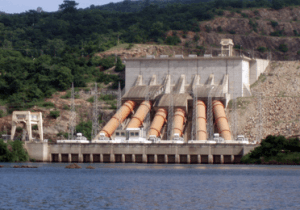Hydro potential in Ghana said to be limited

Ghana has moved from 100 percent hydro capacity to a mix that is currently dominated by thermal sources of 63 percent, Mr. Abdul Noor Wahab, Manager Generations and Systems Planning, Volta River Authority has stated.
He said Ghana’s generation at the end of 2021 was dominated by natural gas followed by hydro, liquid fuel, and others adding that the country’s major cost driver remained natural gas.
Speaking on the topic: “Ghana’s Energy Generation Mix and the Future Outlook,” at Gas Accountants Business Summit organized by Energy Sector Recovery Programme (ESRP), Mr Wahab said the potential of hydro was limited.
He explained that after Pwalugu’s 60 megawatts, Juale-90MW, and Western River’s about 340MW, available hydro potential in the country was limited.
He said there was potential for solar in almost every part of the country adding that its potential on average was at 15 to 18 percent capacity factor without battery storage.
Mr Wahab however noted that, the cost of generation would increase significantly when four to six hours of battery storage was added.
He said wind potential was limited as the best wind speeds was along the cost, noting that cost of generation from wind could be 10 US cents/kWh if funding at five percent or lower were available.
Mr Wahab said thermal had the highest prospect, easy to deploy, had combined cycles that required water for cooling and could now be cooled by air, in addition to having competitive cost.
He said nuclear also had a potential to play an important role but has high capital cost which was likely to affect its quantity in future generation mix and thermal generation would dominate by 2040 with a component of about 88 percent of the mix.
The Gas Accountants’ Business Summit was organised to discuss the natural gas business in Ghana and its related issues to achieve a financially sustainable energy sector.
The summit was on the theme; “The Role of Natural Gas on Ghana’s Sustainable Future,” brought together accountants, lawyers, commercial experts, and other professionals within the energy sector.
Other presentations during the summit covered the Cash Waterfall Mechanism’s concept, accounting and implementation, Public Utility Regulatory Commission (PURC), natural gas prospects for economic transformation, the future of Africa Gas in the global economy, and the outlook of ECG’s billing processes, and many others.
Source: GNA
